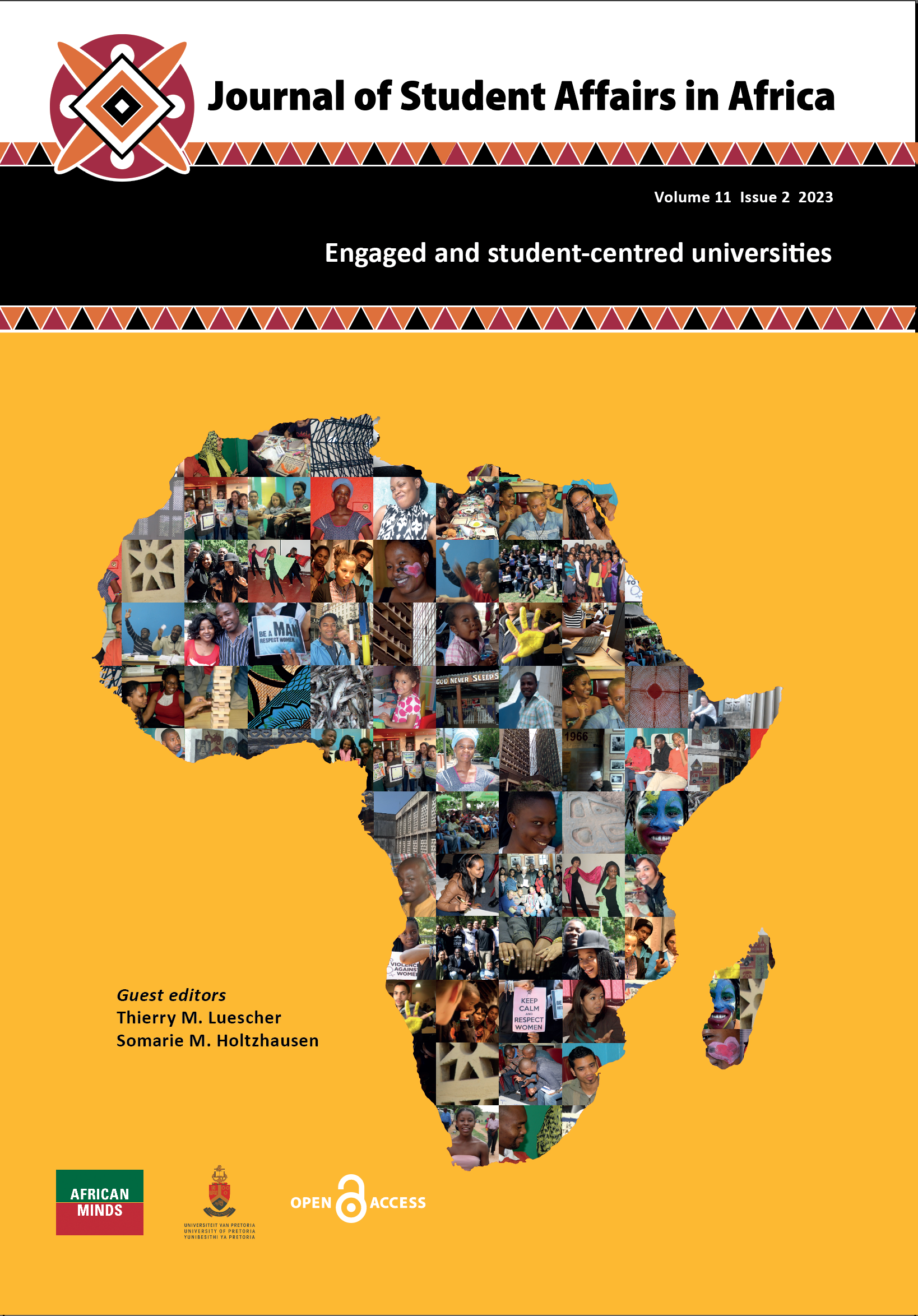Access to and effectiveness of support services for students in extended curriculum programmes at a South African university
DOI:
https://doi.org/10.24085/jsaa.v11i2.4896Abstract
In South Africa, many students enter university without the skills required for success in higher education. Extended curriculum programmes (ECP) were developed to provide students who showed potential but were underprepared with the necessary foundations to achieve success in higher education. Student support services are essential to student success. This has been apparent especially in universities enrolling academically underprepared students. This study, conducted by the Office of the Academic Advisor at the Faculty of Medicine and Health Sciences at Stellenbosch University, aimed to explore the effectiveness of and participation in support services available to students in the ECP. The last cohort of ECP students was accepted at the faculty in 2018 for the MBChB, BSc Physiotherapy, and BSc Speech-Language and Hearing Therapy degrees. On successful completion of the ECP, students join the second year of their respective mainstream programme and are tracked throughout their academic career with dedicated support services offered to them. As students transition from the ECP, they need to utilise their own agency to access the support services available. A quantitative survey including qualitative responses was used for data collection and was explored using thematic analysis. Specifically, the study explored students’ awareness and utilisation of, and their expressed interest in, the available support services. It was important to investigate the support needs of ECP students as an increasing need for support services had been identified during the COVID-19 pandemic. Furthermore, minimal data were evident on support needs of senior ECP students and especially on this population in health sciences. The research gave greater insight into students’ support needs. The findings indicated that students were familiar with and had accessed support services to an extent that they were able to share firsthand experiences of accessing support at the university.
Downloads
Published
Issue
Section
License
Copyright (c) 2023 Lamese Chetty, Brigitta Kepkey

This work is licensed under a Creative Commons Attribution-NonCommercial-ShareAlike 4.0 International License.
Authors who publish with this journal agree to the following terms:
Authors retain copyright and grant the journal right of first publication with the work simultaneously licensed under the Creative Commons Attribution Share-alike 4.0 International License that allows others to share the work with an acknowledgement of the work's authorship and initial publication in this journal.
Authors are able to enter into separate, additional contractual arrangements for the non-exclusive distribution of the journal's published version of the work (e.g., post it to an institutional repository or publish it in a book), with an acknowledgement of its initial publication in this journal.
Authors are permitted and encouraged to post their work online (e.g., in institutional repositories or on their website) prior to and during the submission process, as it can lead to productive exchanges, as well as earlier and greater citation of published work (See: The Effect of Open Access).


